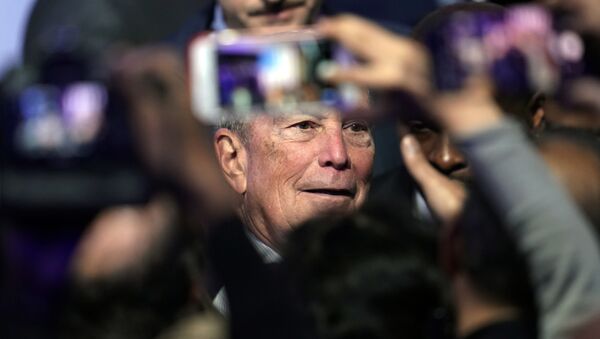Former New York City Mayor Michael Bloomberg caused a massive uproar last week after it emerged that the politician had invested in a massive social media meme-blitz to highlight his presidential campaign. Does it mean that memes, which can take on different forms including images, videos or texts, are becoming a full-fledged political tool now?
“The Internet offers a plethora of ways to convey political messaging beyond what most people traditionally think of as advertising, such as memes paid for by campaigns or other political groups”, says Anna Massoglia, a researcher at the Center for Responsive Politics.
But if it is so, can memes indeed have a long-term impact on voting behaviour, and if they can, can this influence be solely positive?
Bloomberg Paid for Memes But Not for Counter-Memes
“MEMEs creation is a practice that has been professionalised”, tech entrepreneur Fernando Bruccoleri notes. “Memejacking is a marketing art. Making memes does not depend only on creativity; it is taking advantage of opportunities”.
Mike Bloomberg’s team has definitely gone all out to take full advantage of his opportunities, by reaching out to multiple popular Instagram accounts working with the Meme 2020 project. The bloggers involved with Bloomberg’s campaign started uploading screenshots featuring direct messages from the 2020 Democratic presidential contender himself, which presented the billionaire as a humorous and weird old guy who was trying to navigate through a complicated social media reality.
The pig people who run Fuck Jerry & other meme-stealing accounts are being paid to promote Mike Bloomberg. https://t.co/mEviwXYq2I
— Vic Berger IV (@VicBergerIV) February 13, 2020
Although Bloomberg’s bid has left netizens in stitches, getting him strong social media attention, some advocacy groups, including Study Hall, have launched a counter “meme campaign” against the ex-mayor, denouncing him for his alleged bias in the past.
SH is proud to announce a new initiative: the Negative Bloomberg Meme Microgrant!
— Study Hall (@studyhallxyz) February 14, 2020
1) Make and post an original meme about Michael Bloomberg's history of racism, islamophobia, sexism, etc.
2) Tag Study Hall
3) We venmo you $5
4) everyone enjoys the meme!
Bruccoleri argues that Bloomberg’s example has shown that this kind of “meme strategy” can have various effects on 2020 presidential candidates, and not only “strengthen” their messages and speeches but can even “play against” them.
Memes Are Still ‘Harmless’
On the other hand, Rich Tehrani, a futurist and corporate advisor on cybersecurity, believes that memes are “not influential enough” to somehow influence voting behaviour and change people’s preferences. But he still argues that these cultural artefacts could continue to be used “as evidence of election interference or as an excuse for losing elections”.
“They [memes] are appreciated by people who agree with them and are forwarded within the individual’s network of like-minded people”, the analyst notes. “They can exaggerate to make a point, or they can embrace a “conspiracy theory”, but again, they appeal to people who already agree with the underlying theory that the meme represents”.
“In summary, memes are harmless fun, used by politicians to achieve their gains”, Tehrani concludes.
Bloomberg’s Initiative Had an Impact
Meanwhile, the history with Bloomberg’s meme-appeal has led to some real-life consequences, as though following his bid, Facebook, which also runs Instagram, has changed the rules on “branded content” from general users who are paid by companies for advertising purposes. From now on, Instagram will require sponsored posts to be accompanied by disclaimers to inform social media users about who has paid for the influencers’ content, but the amount of payment will remain undisclosed.
In any case, the meme-strategy has highlighted a completely new and unconventional way to convey political appeal and get widespread publicity without directly turning to advertising. In the end, it’s 21st century, what else to say?




